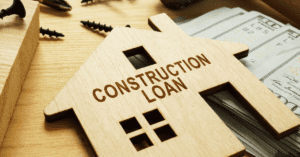Introduction: The Foundation of Commercial Real Estate
In the ever-evolving world of commercial real estate, construction loans are a vital resource for developers and investors alike. These loans provide the financial backing to transform blueprints into towering structures and bustling business hubs. Understanding the intricacies of commercial real estate construction loans is essential for anyone looking to embark on this lucrative journey. This guide will explore various aspects of construction loans, from their definition to the application process and everything in between.
What Are Commercial Real Estate Construction Loans?
Commercial real estate construction loans are short-term financing options specifically designed to cover the costs associated with the construction of commercial properties. These loans typically finance the building of retail spaces, office buildings, warehouses, and multifamily units. Unlike traditional real estate loans, which provide long-term financing for property purchases, construction loans focus on covering the expenses incurred during the construction phase. Moreover, these loans are typically structured as interest-only loans. Borrowers only pay interest on the drawn amount during the construction period, which usually lasts 12 to 36 months. Once construction is complete, borrowers can pay off the loan in full or refinance it into a permanent mortgage. This flexibility makes commercial real estate construction loans attractive for developers looking to leverage their investments.
Types of Commercial Real Estate Construction Loans
When considering a commercial real estate construction loan, it is essential to understand the various types available. Each type serves different needs and circumstances, making it crucial to choose the right one for your project.
- Construction-to-Permanent Loans: These loans combine construction and permanent financing phases into a single loan. Once the construction is complete, the loan automatically converts into a permanent mortgage. This option simplifies the financing process and reduces the need for multiple applications.
- Stand-Alone Construction Loans: Unlike construction-to-permanent loans, stand-alone construction loans only cover the construction phase. Once the project is completed, borrowers must secure a separate mortgage to repay the construction loan. This option may suit those seeking other financing sources after completion.
- Owner-Builder Loans: If you are a property owner or developer who intends to manage the construction process personally, owner-builder loans might be the right choice. These loans allow you to act as your own general contractor, giving you more control over the project and potentially saving on contractor fees.

Key Benefits of Commercial Real Estate Construction Loans
Investing in commercial real estate construction loans offers several advantages for developers. Understanding these benefits can help you evaluate whether this financing option suits your project. First and foremost, commercial construction loans provide the necessary capital to bring ambitious projects to life. With this funding, covering the upfront costs associated with permits, materials, and labor would be easier. Furthermore, these loans often come with flexible terms and interest-only payment structures, allowing developers to manage cash flow effectively during construction.
Additionally, securing a construction loan can enhance credibility with investors and stakeholders. It signifies that you have a concrete plan and financial backing for your project. This credibility can be instrumental in attracting additional investors or securing partnerships to further elevate your project’s success.
The Application Process for Commercial Construction Loans
Navigating the application process for commercial real estate construction loans can be daunting, but being well-prepared can streamline the experience. Here are some critical steps when applying for a construction loan: 1. Prepare Your Documentation: Gather all necessary documentation before approaching lenders. This includes detailed project plans, construction budgets, and timelines. Lenders will want a comprehensive overview of your project to assess its viability and potential return on investment.2. Choose the Right Lender: Not all lenders offer the same terms and rates for construction loans. Research various banks, credit unions, and private lenders to find an institution that aligns with your project’s needs. Consider their experience in commercial real estate financing and their reputation within the industry.
Understanding Loan Terms and Conditions
Once you’ve chosen a lender, it’s crucial to understand the terms and conditions associated with your commercial real estate construction loan. This knowledge will empower you to make informed decisions and avoid potential pitfalls. Interest Rates: Interest rates for construction loans can vary significantly based on the lender, the borrower’s creditworthiness, and the overall risk associated with the project. Construction loan rates are typically higher than traditional mortgages due to the increased risk involved. However, securing a competitive rate can save you money in the long run. Loan-to-Value (LTV) Ratio: Lenders often use the loan-to-value ratio to determine how much they are willing to lend for a project. Generally, construction loans have an LTV ratio of 70-80%, meaning lenders will finance 70-80% of the project’s total cost. Understanding this ratio will help you gauge how much equity you need to bring to the table.
Common Challenges in Securing Construction Loans
While commercial real estate construction loans can be incredibly beneficial, they are challenging. Awareness of potential hurdles can help you prepare and navigate the process more effectively.1. Strict Qualification Requirements: Lenders typically impose stringent qualification criteria for construction loans. They may evaluate your credit history, financial stability, and previous project experience. If you do not meet these requirements, securing a loan may prove difficult.2. Project Viability Concerns: Lenders closely scrutinize the viability of your project before approving financing. They will assess your project plans, market conditions, and the anticipated return on investment. If they perceive your project as high-risk, they may decline your application or offer unfavorable terms.
Tips for a Successful Loan Application
To boost your chances of securing a commercial real estate construction loan, consider the following tips:1. Present a Detailed Project Plan: A well-structured project plan can demonstrate your commitment and preparedness. Include a comprehensive budget, timeline, and clear objectives. The more thorough your plan, the more confident lenders will feel about financing your project.2. Build Relationships with Lenders: Establishing a positive relationship with potential lenders can significantly impact your application’s outcome. Attend networking events, schedule meetings, and openly communicate your project’s goals. Building trust can lead to more favorable terms and conditions.

The Role of Real Estate Loans in Commercial Development
Real estate loans, including commercial construction loans, are pivotal in development. They provide the necessary funding to acquire land, cover construction costs, and ensure a project’s completion. Without these loans, many commercial developments would remain mere concepts rather than tangible assets. Furthermore, real estate loans can influence market dynamics. As developers secure financing for new projects, they contribute to the growth of local economies, create jobs, and enhance community infrastructure. Understanding the broader implications of real estate loans can help you appreciate their importance in commercial real estate.
Conclusion: Building a Successful Future
In conclusion, commercial real estate construction loans are essential for developers seeking to bring their visions to life. By understanding the intricacies of these loans, including their types, benefits, and application processes, you can confidently navigate the world of commercial development. As you embark on your journey in the commercial real estate sector, conduct thorough research, foster relationships with lenders, and present compelling project plans. With the right approach and financing, you can unlock the opportunities that await in this dynamic industry.

